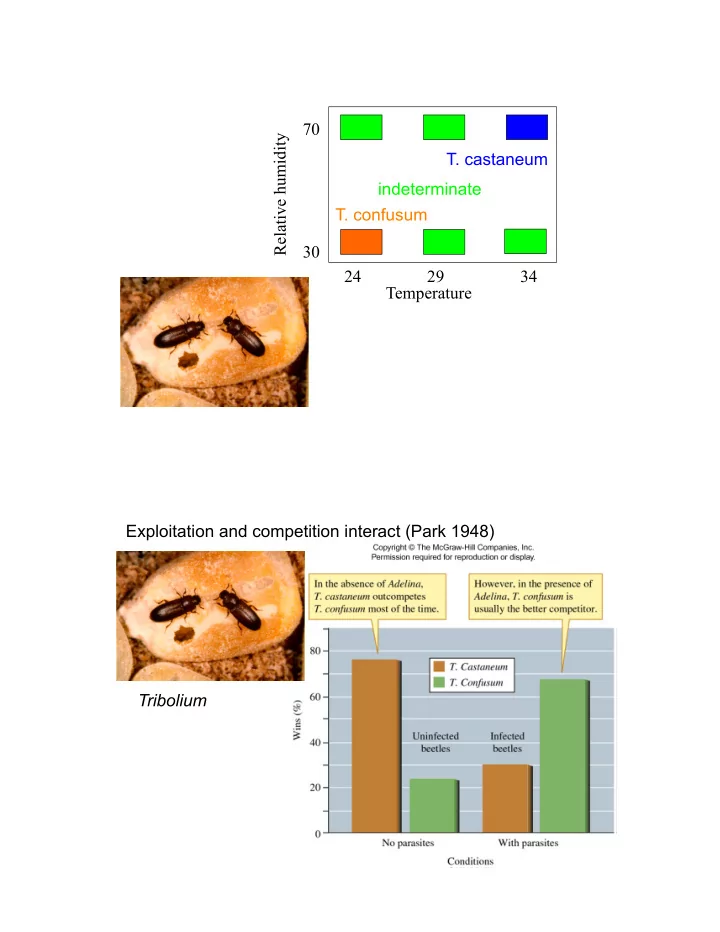

70 y t i T. castaneum d i m u indeterminate h e T. confusum v i t a l e 30 R 24 29 34 Temperature Exploitation and competition interact (Park 1948) Tribolium
Predator - prey cycles: lynx and hare Modelling predator - prey cycles Our old friends Vito Volterra Alfred Lotka
Refuges and the importance of environmental structure Huffaker (1958) Huffaker’s results Simple universe More complex
Huffaker’s results continued - complex universe Tray design - barriers Rosenzweig - MacArthur predator-prey model Population of predators (N p ) Population of prey (N h )
Rosenzweig - MacArthur predator-prey model Prey ZNGI peaks outside Pred ZNGI Population of predators (N p ) Prey carrying capacity Population of prey (N h ) stable Rosenzweig - MacArthur predator-prey model Paradox of enrichment…. Prey ZNGI peaks outside Pred ZNGI Prey ZNGI peaks inside Pred ZNGI Population of predators (N p ) stable unstable Population of prey (N h )
Mycorrhizal fungi – one of THE mutualisms Present in all but a few plant families (92%) >80% of plant species estimated to house mycorrhizae AM associations may have originated with the colonization of land.>400 Mya Arbuscular mycorrhizae Ectomycorrhizae Interaction Continuum Example: Mycorrizae work by Johnson et al. (1993, 1997)
Tripartite Mutualism Leaf-cutter Ants Fungus Streptomyces Combats Escovopsis Animal Pollination – Another one of THE mutualisms
Senita cactus - senita moth A pollination-seed predator mutualism… egg Lophocereus schotii Upiga virescens Holland and DeAngelis (2002) model of the Lophocereus-Upiga mutualism dP/dt<0 dM/dt<0 dM/dt>0 # Moths dP/dt>0 dM/dt<0 # Plants Lophocereus Upiga virescens schottii
Recommend
More recommend